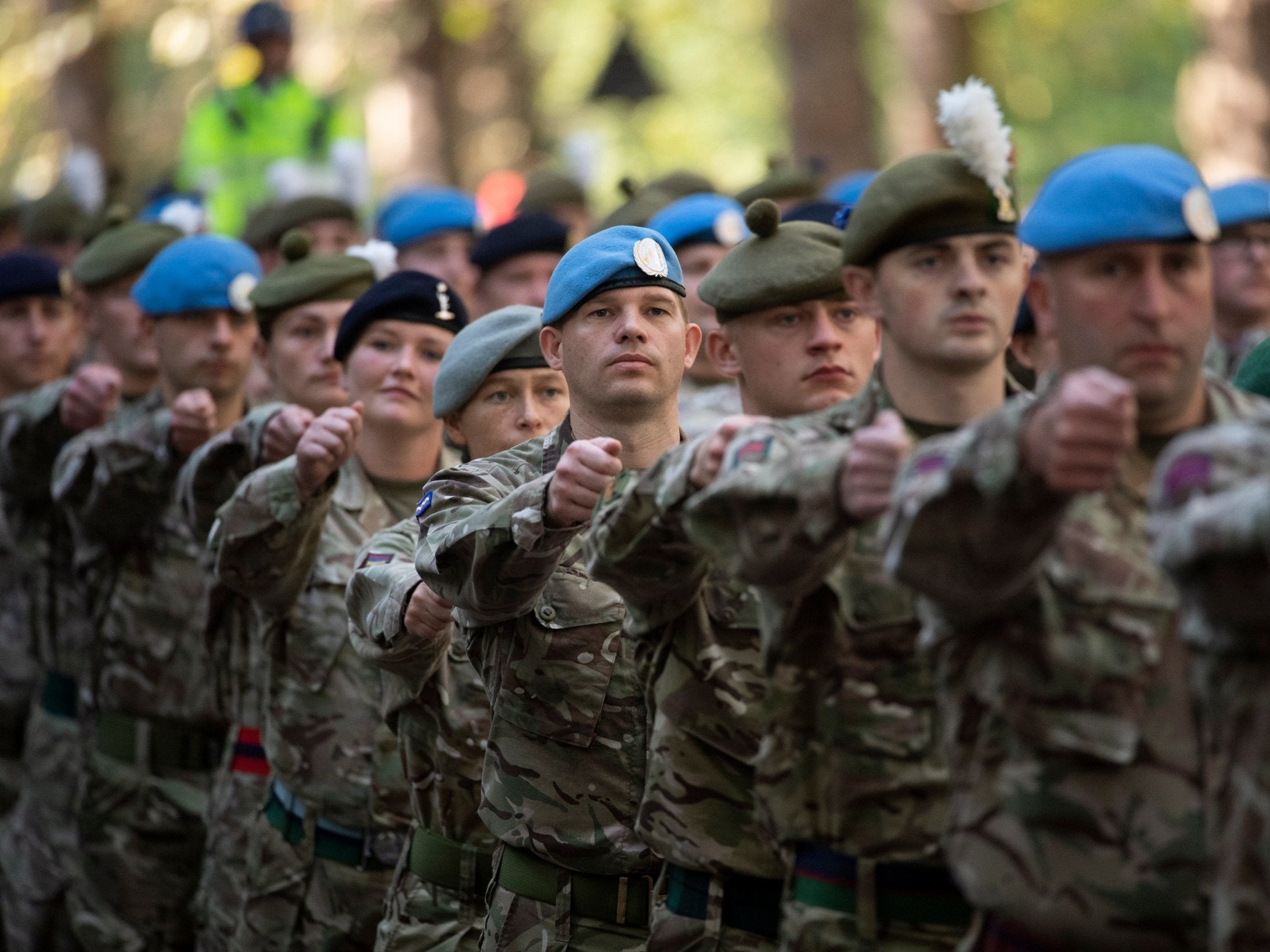Armed Forces Day is a propaganda tool for arms firms and the military – and the public are footing the bill
The day is not just about offsetting the reputational damage inflicted after the disastrous wars in Iraq and Afghanistan – but preparing the ground for the next conflict


Your support helps us to tell the story
From reproductive rights to climate change to Big Tech, The Independent is on the ground when the story is developing. Whether it's investigating the financials of Elon Musk's pro-Trump PAC or producing our latest documentary, 'The A Word', which shines a light on the American women fighting for reproductive rights, we know how important it is to parse out the facts from the messaging.
At such a critical moment in US history, we need reporters on the ground. Your donation allows us to keep sending journalists to speak to both sides of the story.
The Independent is trusted by Americans across the entire political spectrum. And unlike many other quality news outlets, we choose not to lock Americans out of our reporting and analysis with paywalls. We believe quality journalism should be available to everyone, paid for by those who can afford it.
Your support makes all the difference.Today marks the 10th year of Armed Forces Day with the main event held in Salisbury. Styled as family friendly, the National Armed Forces Day event, and others around the country, feature militarised activities designed for children and young people. In between the ice creams and rides, kids are able to try on military uniform and can be shown how real (albeit deactivated) machine guns and other weapons work. Yet despite the fairground veneer to the proceedings, the event’s origins point to a much darker story.
Founded by Gordon Brown – and replacing what had been Veteran’s Day – Armed Forces Day was one strand of a package of proposals put together to re-militarise British society in a bid to stave off the popular backlash from failed wars in Afghanistan and Iraq, lest anti-war sentiment hinder future conflicts.
It is by now well established by serious scholars of the topic that this was done in a bid to place beyond critique the violent, extractive and discredited foreign policy doctrine to which all UK political parties, British business, sections of our media and the country’s military elite were (and for the most part still are) fully committed. The hope was that even mild criticism would be conflated with an unpatriotic lack of support for individual soldiers.
Armed Forces Day (which in truth is a whole week of jingoistic events) has become everything that Remembrance Day (no doubt, frustratingly for the UK’s vigorous militarists) cannot quite be: a kind of annual martial circus act sagging under the weight of its own bunting.
Certainly not everything has gone the way of Britain’s hawks since they began their bid to sanctify the military and war. Opposition to foreign wars, for example, has contributed towards a worrying new norm wherein remote warfare is carried out virtually unaccountably through special forces, drones and proxies. This is not the “boots on the ground” preferred by military leaders, who we should recall pushed for maximum involvement in Iraq and Afghanistan.
Yet the series of initiatives of which Armed Forces Day is one part – more cadet forces, increasing reservist visibility, more “good news” stories about the military, etc – have been successful in the sense that they have helped to limit democratic space for discussion of the military, foreign policy and the UK’s violent global past and present.
The fluffy tone of the annual event aside, nowhere is the moral dubiousness of Armed Forces Day better expressed than in the deep involvement of global arms firms who, only a week after having their wings clipped with a historic court victory to limit them cashing in on the destruction of Yemen, will be taking a central role once again. There is no small irony in the fact that the same arms firms that have provided the weapons to kill Yemeni children will be funding “fun” events for British children this weekend.
No fewer than eight arms firms – including BAE Systems, Babcock, Lockheed and Boeing – are sponsoring or supporting the Wiltshire event.
And like the MoD they will enjoy substantial publicity from events mostly paid for from the budgets of hard-up local councils. A freedom of information request by ForcesWatch recently revealed that while the MoD is contributing £25,000, this is only a twelfth of the £300,000 local councils are putting in. Arms firm contributions are not known for 2019, but last year’s National Event in Conwy cost £375,530 with a £5,000 sponsorship from BAE and £30,000 from General Dynamics.
Ten years on Armed Forces Day has become what it was intended to be. A promotional vehicle in the interests of the MoD and arms firms carried out at substantial expense to the public purse, even long after the war in Iraq and Afghanistan are officially over. Yet as the actors driving the new militarism know full well, their work is not just about offsetting the damage of the last war: it is every bit as much about preparing for the next one.
Against a background of crisis in Yemen, American (and of course, by extension, British) brinkmanship over Iran, as well as continued posturing over Russia and China, the public should consider deeply what the real rationale behind events like Armed Forces Day is, and consider the cost of letting militarists (both liberal and conservative) guide and shape our perceptions of war and the military.
Joe Glenton is an Afghanistan veteran, journalist and the author of ‘Soldier Box’
Join our commenting forum
Join thought-provoking conversations, follow other Independent readers and see their replies
Comments